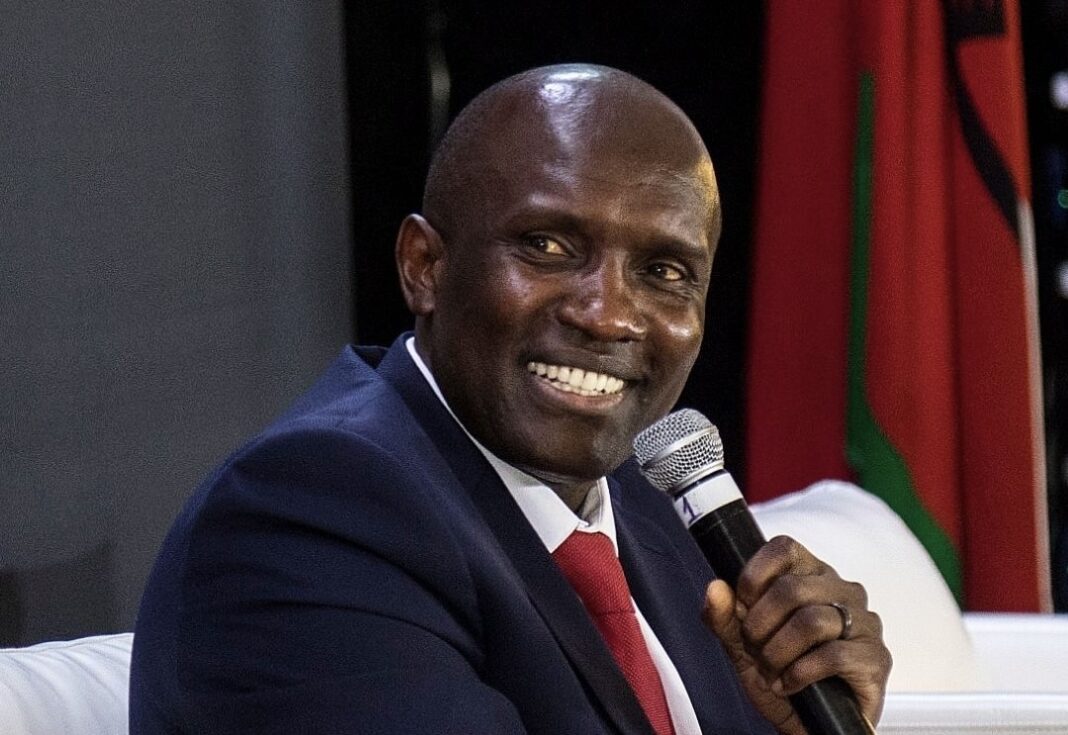The glittering facade of Julius Mwale’s self-proclaimed billionaire empire began crumbling in October 2024 when the Kenyan businessman and his wife Kaila stopped paying rent on their luxury estate in Alamo, California.
What followed was a financial unraveling that culminated in their eviction after a $450,000 check bounced, exposing the stark reality behind years of grandiose wealth claims.
Court documents from Contra Costa County reveal the dramatic fall from grace of a man who had cultivated an image as one of Kenya’s most successful entrepreneurs.
The eviction from the multimillion-dollar estate in Alamo, California, occurred after Mwale failed to pay rent and issued a $450,000 cheque that bounced , marking a humiliating end to his lavish American lifestyle.
The German investment firm MHF Holding Vier GmbH & Co. KG, which owned the property, had grown increasingly frustrated with the Mwales’ inability to meet their rental obligations.
When the couple attempted to cover their rent arrears with the $450,000 personal check, it bounced due to insufficient funds, prompting the court to rule in favor of the landlord and authorize an official eviction.

This wasn’t merely a housing dispute but a symbol of deeper financial troubles plaguing the man who had positioned himself as a visionary investor in Kenya’s healthcare and technology sectors.
The bounced check represented more than unpaid rent—it exposed the hollow foundation beneath years of grandiose claims about his business empire.
The eviction follows a troubling pattern of legal challenges that have dogged Mwale across multiple jurisdictions.
Most notably, Matthew Shaw and his wife Brooke Shaw sued Julius Mwale and his wife Kaila Mwale in US District Court, District of Utah, over failure to refund $870,000 that the Mwales allegedly borrowed ostensibly to invest in Kenya and the DRC .
The Shaw case revealed the stark disconnect between Mwale’s promises and reality.
The Shaws claim that Julius Mwale and his wife received US$1.7 million from them in 2022 after they were misled into believing the money would be invested in a geological survey in the Democratic Republic of Congo.
However, when the American couple visited Kenya to inspect their investment, they discovered a construction site in disarray rather than the thriving medical facility they had been promised.
During a visit to Kenya, the Shaws found that the much-touted hospital in Kakamega, purportedly the largest and most advanced, was merely a construction site in disarray.
Promised facilities were nonexistent, leaving the Shaws to confront the disillusionment of investing in a mirage .
The Shaw lawsuit was eventually withdrawn following what appears to have been a private settlement in April 2023.
“The Shaws release and forever discharge the Mwales from any and all claims,” attorney Nicole Skolout wrote.
The agreement also stated that any party filing a future complaint would forfeit the right to damages .
Yet perhaps the most disturbing allegations involve vulnerable victims.
Court documents filed by Graham’s attorney reveal that Mwale had signed a promissory note to repay a 95-year-old woman named Graham Ksh 466 million (US $3.6 million) by November 24, 2020, with an 8% annual interest starting from the date of the agreement.
Julius Mwale exploited a blind, half-deaf 95-year-old woman, convincing her to remortgage her properties, leaving her penniless.
Despite promises, he never repaid her, forcing her to work to survive.
Meanwhile, he lived comfortably off her ruined finances .
The California eviction represents more than just a real estate dispute—it’s a public reckoning for a man whose carefully constructed image as a billionaire philanthropist has crumbled under legal scrutiny.
The inability to cover a rental payment with a valid check starkly contradicts the narrative of vast wealth that Mwale has promoted through social media and public appearances.
The court documents reveal that Mwale’s attempt to contest the eviction via a demurrer was overruled.
As litigation continues into 2025, this case has spotlighted the growing questions about the authenticity of his business empire and the true status of his flagship project, the Mwale Medical and Technology City in Kakamega County.
For investors who entrusted Mwale with significant sums based on his promises of revolutionary healthcare and technology developments in Kenya, the California eviction serves as a stark reminder that the foundation of his empire may have been far more fragile than anyone imagined.
The bounced check that forced him from his luxury estate has become an emblem of a broader pattern of financial promises that, like the check itself, simply couldn’t be honored.
As the legal and financial challenges mount, the man who once claimed to be transforming Kenya’s healthcare landscape now faces the reality of being unable to maintain even his own basic financial obligations in the United States, leaving behind a trail of unpaid debts and unfulfilled promises that stretches from California to Kenya.


